Comentario bibliográfico
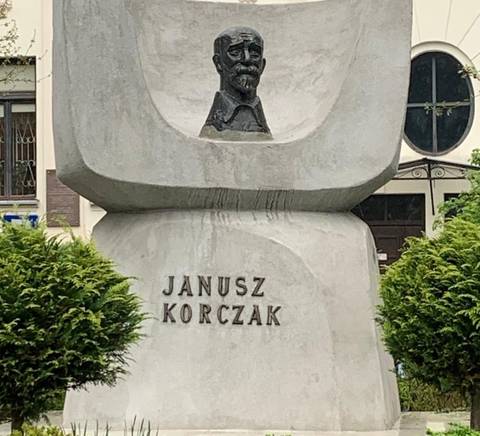
La selección bibliográfica que acompaña a la exposición dedicada al Dr. Janusz Korczak, figura emblemática de la pedagogía y firme defensor de los derechos de la infancia, se articula en seis secciones temáticas que recorren las múltiples facetas de su obra y legado. A través de los ejemplares seleccionados se aprecia tanto la evolución de su pensamiento educativo como la toma de conciencia en torno a los derechos del niño en el siglo XX. La muestra propone así un recorrido por sus escritos, que abarca desde la reflexión pedagógica hasta la crítica y la biografía.

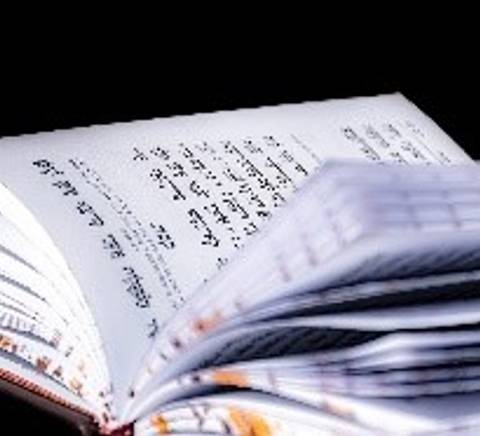
La primera sección reúne las obras fundamentales en las que Korczak desarrolla sus teorías educativas, centradas en el respeto absoluto hacia el niño. Sobresalen títulos como Cómo hay que amar a un niño (Madrid, 1976), síntesis de su visión humanista y afectiva, que constituye la base ética de su pedagogía. Le droit de l'enfant au respect (París, 2017), volumen que vincula su pensamiento con la Convención de la ONU sobre los Derechos del Niño y De la pédagogie avec humour (París, 2012), que muestra su faceta más cercana y humana, a través de escritos y emisiones radiofónicas.
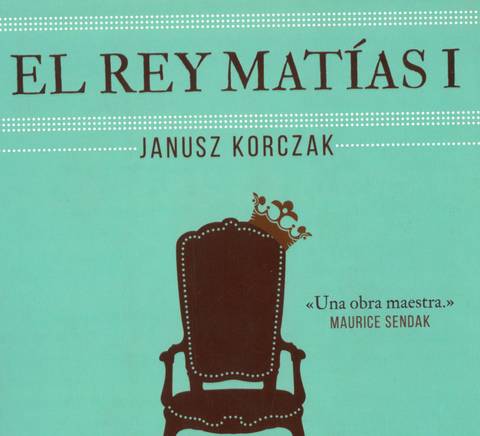
La segunda sección, dedicada a la Literatura infantil y juvenil, presenta a Korczak como narrador y creador para los más jóvenes. Podemos encontrar entre otros, El rey Matías I (Barcelona, 2014), destaca por su carácter pedagógico y simbólico, avalado por las numerosas traducciones y reediciones que confirman su relevancia en la literatura infantil o Kaytek, le magicien conte (París, 2010, relatos que combinan lo mágico con un trasfondo ético, y Quand le reviendrai petit (Paris 2013), texto de marcado tinte autobiográfico en el que pedagogía y experiencia personal convergen.

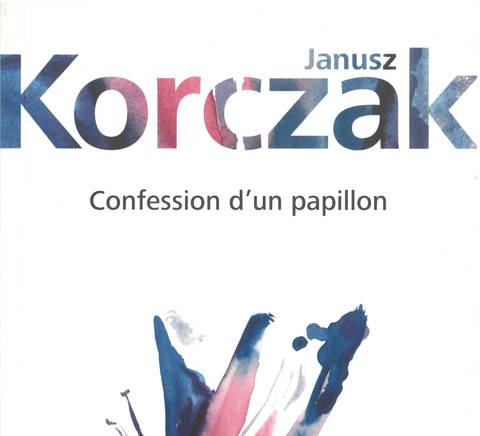
La tercera sección aborda crónicas, diarios y relatos de experiencias, accesos directos a la dimensión histórica y humana del autor. Se exhiben: Diario del gueto y otros escritos (Barcelona, 2018), testimonio de extraordinario valor histórico y moral sobre la vida en el gueto de Varsovia, junto con Les colonies des vacances (París, 2017) y Confession d'un papillon (París, 2018) , textos íntimos que revelan su compromiso como educador en circunstancias extremas.La cuarta sección centrada en artículos periodísticos y colaboraciones, descubre a un Korczak, prolífico articulista y pionero en dar voz a los niños a través de los medios. El periódico infantil Maly Przeglgd, fundado y dirigido por él, ocupa aquí un lugar destacado como símbolo de su activismo pedagógico y social, así como de su empeño en reconocer a los niños como sujetos de derechos.
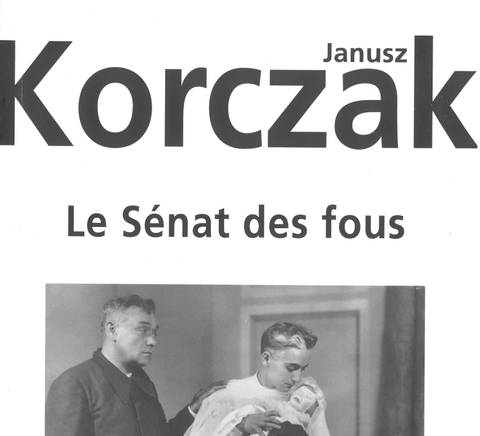
La quinta sección nos muestra al Korczak dramaturgo con Le sénat des fous (París, 2016) su obra teatral más reconocida, en la que proyecta su preocupación ética y social mediante la expresión escénica. Finalmente la sexta sección, presenta obras críticas y biográficas recientes que revisan e interpretan su figura. Entre ellas destacan Janusz Korczak la cause des enfants (Arras, 2017) coordinada por Christian Morzewski, que sitúa su pensamiento en el debate histórico-pedagógico internacional; A pedagogy of humanist moral education de Marc Silverman (Nueva York, 2017), un estudio profundo que conecta su ideario con la pedagogía humanista contemporánea y biografías como Señor doctor de Juan Agustín Blasco Carbó (Zaragoza, 2019) que aportan una visión más personal de su trayectoria vital. La vida y obra de Janusz Korczak encierran una lección que trasciende el tiempo. Recordarlas implica que reconocemos la vigencia de sus ideales y rendimos homenaje a un testimonio ejemplar, en el que la unión de palabra y acción confluyen orientadas a transformar la realidad.
La Biblioteca de la Universidad Pontificia Comillas expresa su agradecimiento a los profesores Juan Carlos Torres Puente y Leonor Prieto Navarro por su valiosa colaboración en la organización de esta muestra bibliográfica, así como por la generosa cesión de ejemplares para la ocasión.

---
Bibliographic commentary
The bibliographic selection accompanying the exhibition dedicated to Dr. Janusz Korczak, an emblematic figure of pedagogy and a staunch defender of children’s rights, is organized into six thematic sections that explore the many facets of his work and legacy. Through the selected volumes, one can trace both the evolution of his educational thought and the growing awareness of children’s rights in the 20th century. The exhibition thus offers a journey through his writings, ranging from pedagogical reflection to criticism and biography.
The first section brings together the fundamental works in which Korczak developed his educational theories, centered on absolute respect for the child. Titles of note include Cómo hay que amar a un niño (Madrid, 1976), a synthesis of his humanist and affectionate vision that constitutes the ethical foundation of his pedagogy; Le droit de l’enfant au respect (Paris, 2017), a volume that links his thought with the UN Convention on the Rights of the Child; and De la pédagogie avec humour (Paris, 2012), which reveals his most approachable and human side through writings and radio broadcasts.
The second section, devoted to Children’s and Young Adult Literature, presents Korczak as a storyteller and creator for the young. Among others, it includes El rey Matías I (Barcelona, 2014), outstanding for its pedagogical and symbolic weight and confirmed as a classic of children’s literature by its many translations and re-editions; Kaytek, le magicien conte (Paris, 2010), where magical narrative intertwines with ethical undertones; and Quand je redeviendrai petit (Paris, 2013), a text with a strong autobiographical character in which pedagogy and personal experience converge.
The third section features chronicles, diaries, and accounts of experience, direct windows into the historical and human dimension of the author. Displayed here are Diario del gueto y otros escritos (Barcelona, 2018), a testimony of extraordinary historical and moral value about life in the Warsaw Ghetto, along with Les colonies des vacances (Paris, 2017) and Confession d’un papillon (Paris, 2018), intimate writings that reveal his commitment as an educator under extreme circumstances.
The fourth section, focused on journalistic articles and collaborations, highlights Korczak as a prolific columnist and pioneer in giving children a voice through the media. The children’s newspaper Mały Przegląd, founded and directed by him, holds a prominent place here as a symbol of his pedagogical and social activism, as well as his determination to recognize children as subjects of rights.
The fifth section presents Korczak as playwright, featuring Le sénat des fous (Paris, 2016), his most celebrated theatrical work, in which he channels his ethical and social concerns through stage expression. Finally, the sixth section presents recent critical and biographical works that revisit and interpret his figure. Outstanding among them are Janusz Korczak: la cause des enfants (Arras, 2017), coordinated by Christian Morzewski, which places his thought within the international historical-pedagogical debate; Marc Silverman’s A Pedagogy of Humanist Moral Education (New York, 2017), a profound study connecting his ideas with contemporary humanist pedagogy; and biographies such as Señor doctor by Juan Agustín Blasco Carbó (Zaragoza, 2019), which offer a more personal view of his life journey.
The life and work of Janusz Korczak contain a lesson that transcends time. To recall them is to recognize the enduring validity of his ideals and to pay homage to an exemplary testimony, in which the unity of word and action is directed toward transforming reality.
The Library of Universidad Pontificia Comillas expresses its gratitude to Professors Juan Carlos Torres Puente and Leonor Prieto Navarro for their valuable collaboration in organizing this bibliographic exhibition, as well as for the generous loan of volumes for the occasion.
